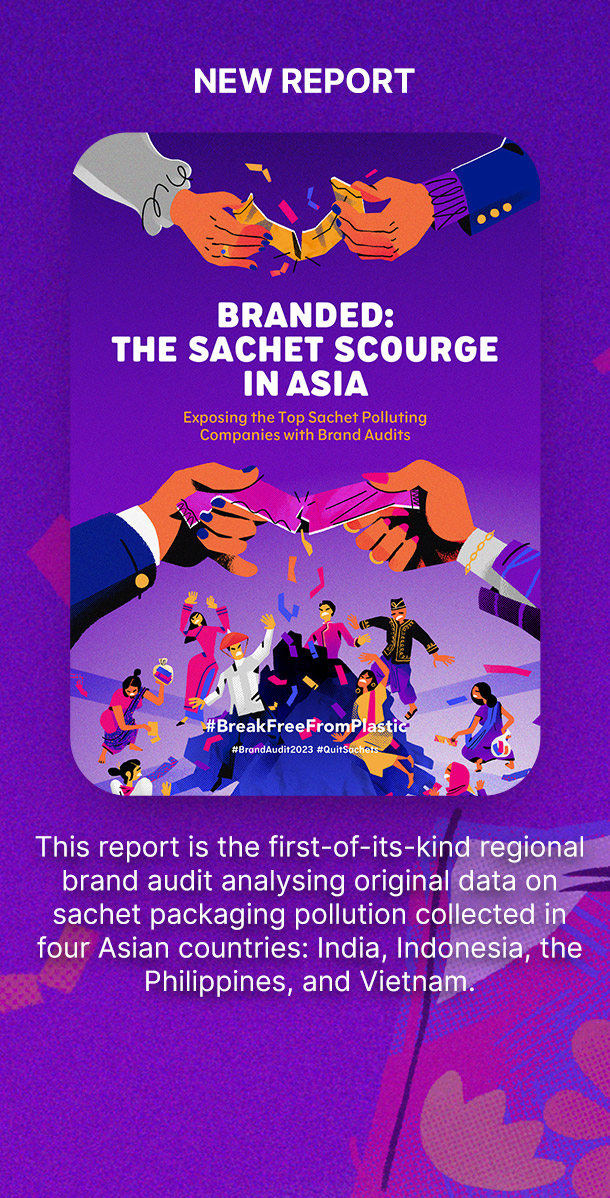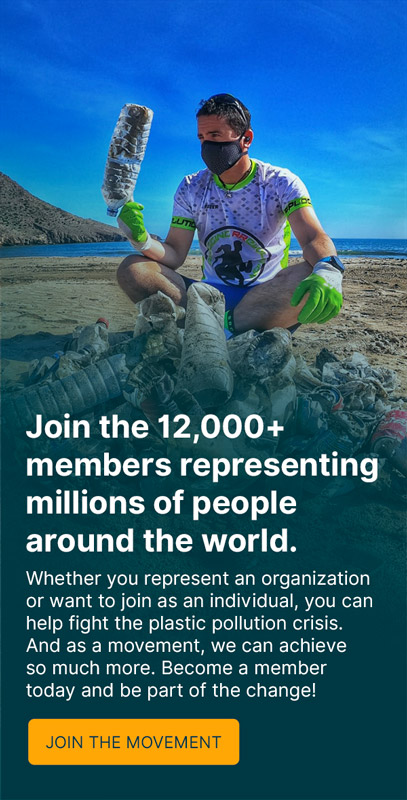On June 30, 2021, Climate Tracker and Break Free from Plastic launched a report titled The Plastic Pandemic: Has COVID-19 Shifted the Media Discourse on Plastics in Southeast Asia?, which assessed media coverage of plastics in Southeast Asia before and during the COVID-19 pandemic.
The report, which is the first of its kind as it delves into the narrative frames used by journalists to communicate the issue of plastic pollution in Southeast Asia, draws from an in-depth analysis of media coverage in Malaysia, Indonesia, Thailand, Vietnam, and the Philippines as well as interviews with a total of 43 journalists and media practitioners from the region.
The report found that plastics, which are made from fossil fuels, were rarely discussed in the context of climate change. “Since climate change is one of the threats to long-term stability in Southeast Asia, there is really a need to address the plastics problem with renewed urgency,” said Patricia Valerio, Climate Tracker Research Manager.
“Despite the efforts of Break Free from Plastic Asia Pacific and its members to shift the narrative, more work needs to be done in countering greenwashing and PR stunts of corporations which are geared towards stopgap measures,” added Jed Alegado, Senior Communications Officer for Break Free from Plastic, Asia Pacific. “Clearly, we need to strengthen the link between plastics and climate in the Asia Pacific region.”
Another one of the report’s main findings is that, since media coverage focused on reducing plastic consumption instead of production, there was a heavy focus on individual responsibility and little scrutiny of plastic producers. The increase in plastic waste that accompanied the COVID-19 pandemic did not significantly shift this discourse.
“I found the notion that Southeast Asian media coverage is focused on individual responsibility instead of corporate and government accountability most compelling,” said Janssen Calvelo, Break Free from Plastic’s Network Organizer for Southeast Asia, about the report. “It posits that there is still much work to be done in sending the message that unless multinational and large corporations stop plastic production and ASEAN governments implement enabling environment through policies, real and substantial solutions to plastic will not be achieved.”
Journalists across the region also faced multiple challenges in reporting on plastics. For example, in Malaysia, physical safety emerged as a concern among journalists who wanted to conduct investigations on plastic recycling factories. “Freedom of information is important and good for everyone,” said Heng Kiah Chun, Greenpeace Malaysia Campaigner, about the lack
of freedom-of-information laws in Malaysia. “Journalists and activists are having a hard time accessing reliable data from the government.”
Still, the report shows that plastics were negatively framed across all Southeast Asian countries studied — an encouraging sign for advocates against plastic use. “The most interesting part of the report is learning that our effort since at least two decades ago to push the narrative against plastic pollution has been successful,” said Rahyang Nusantara, Indonesia Plastic Bag Diet Movement National Coordinator. “In Indonesia itself, 93 percent of media articles framed plastics negatively.”
Journalists who want to deepen their reporting on the problem of plastic pollution are welcome to get in touch with organizations such as Break Free from Plastic and its partners.
“Media practitioners, as well as those who are helping in further professionalizing this noble work, can get help from civil society organizations working on plastic pollution. We can offer collaborations, leads, and help in framing and angles of your story ideas,” Alegado said. “We need to dig deeper into the plastic pollution crisis from production up to disposal as well as its links to other social and environmental justice issues.”
“Plastic pollution does not only impact our environment, but also has long-lasting and well-documented impacts on human rights, climate change, economy, and diplomacy, to name a few,” added Calvelo. “Feel free to reach out to us for more information and case studies.”
Both the full report and an executive summary can be found here. A podcast that gives an overview of country researchers’ perspectives can be found on Spotify, Apple Podcasts, Google Podcast, and Stitcher.
For more information, please contact the following:
Jed Alegado
Break Free from Plastic Asia Pacific Senior Communications Officer
jed@breakfreefromplastic.org
Yvonne Tan
Malaysia Researcher
yvonnetanyf@gmail.com
Ariel Adimahavira
Indonesia Researcher
adimahavirariel@gmail.com
Kadesiree Thossaphonpaisan
Thailand Researcher
kade.thoss@gmail.com
ĐỗThuỳTrang
Vietnam Researcher
dotrangplvn@gmail.com
Patricia Valerio
Philippines Researcher
Climate Tracker Research Manager
patricia@climatetracker.org



